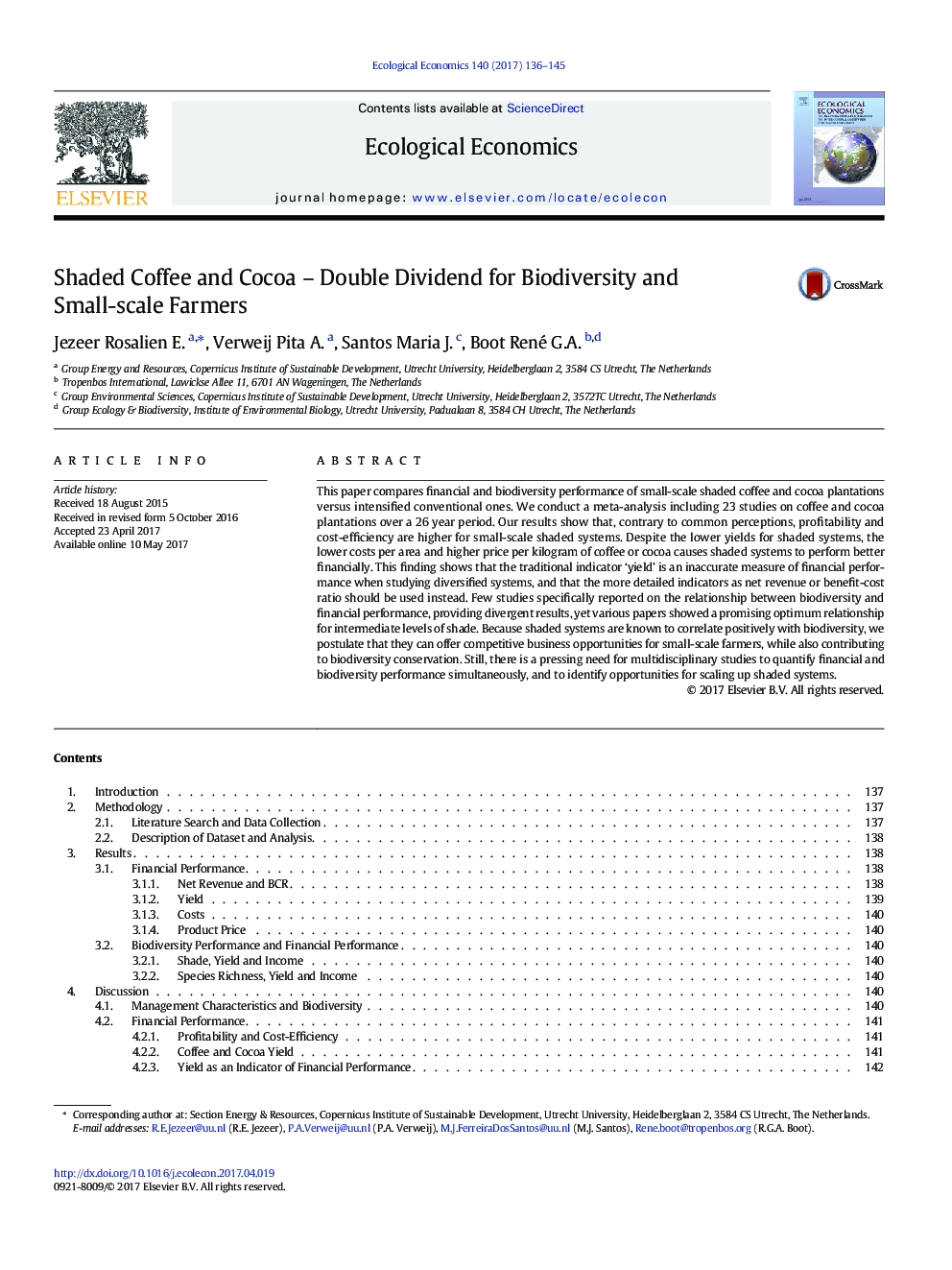| کد مقاله | کد نشریه | سال انتشار | مقاله انگلیسی | نسخه تمام متن |
|---|---|---|---|---|
| 5048626 | 1476339 | 2017 | 10 صفحه PDF | دانلود رایگان |

- Insights in financial and biodiversity performance of shaded coffee and cocoa systems
- Overall, shaded systems have lower yields and lower costs but higher product prices.
- Results show an overall higher profitability and cost-efficiency for shaded systems.
- Biodiversity is higher for shaded systems but there is a lack of data on trade-offs.
- Shaded systems potentially offer competitive business opportunities.
This paper compares financial and biodiversity performance of small-scale shaded coffee and cocoa plantations versus intensified conventional ones. We conduct a meta-analysis including 23 studies on coffee and cocoa plantations over a 26Â year period. Our results show that, contrary to common perceptions, profitability and cost-efficiency are higher for small-scale shaded systems. Despite the lower yields for shaded systems, the lower costs per area and higher price per kilogram of coffee or cocoa causes shaded systems to perform better financially. This finding shows that the traditional indicator 'yield' is an inaccurate measure of financial performance when studying diversified systems, and that the more detailed indicators as net revenue or benefit-cost ratio should be used instead. Few studies specifically reported on the relationship between biodiversity and financial performance, providing divergent results, yet various papers showed a promising optimum relationship for intermediate levels of shade. Because shaded systems are known to correlate positively with biodiversity, we postulate that they can offer competitive business opportunities for small-scale farmers, while also contributing to biodiversity conservation. Still, there is a pressing need for multidisciplinary studies to quantify financial and biodiversity performance simultaneously, and to identify opportunities for scaling up shaded systems.
Journal: Ecological Economics - Volume 140, October 2017, Pages 136-145